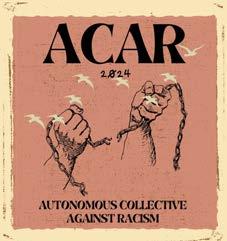
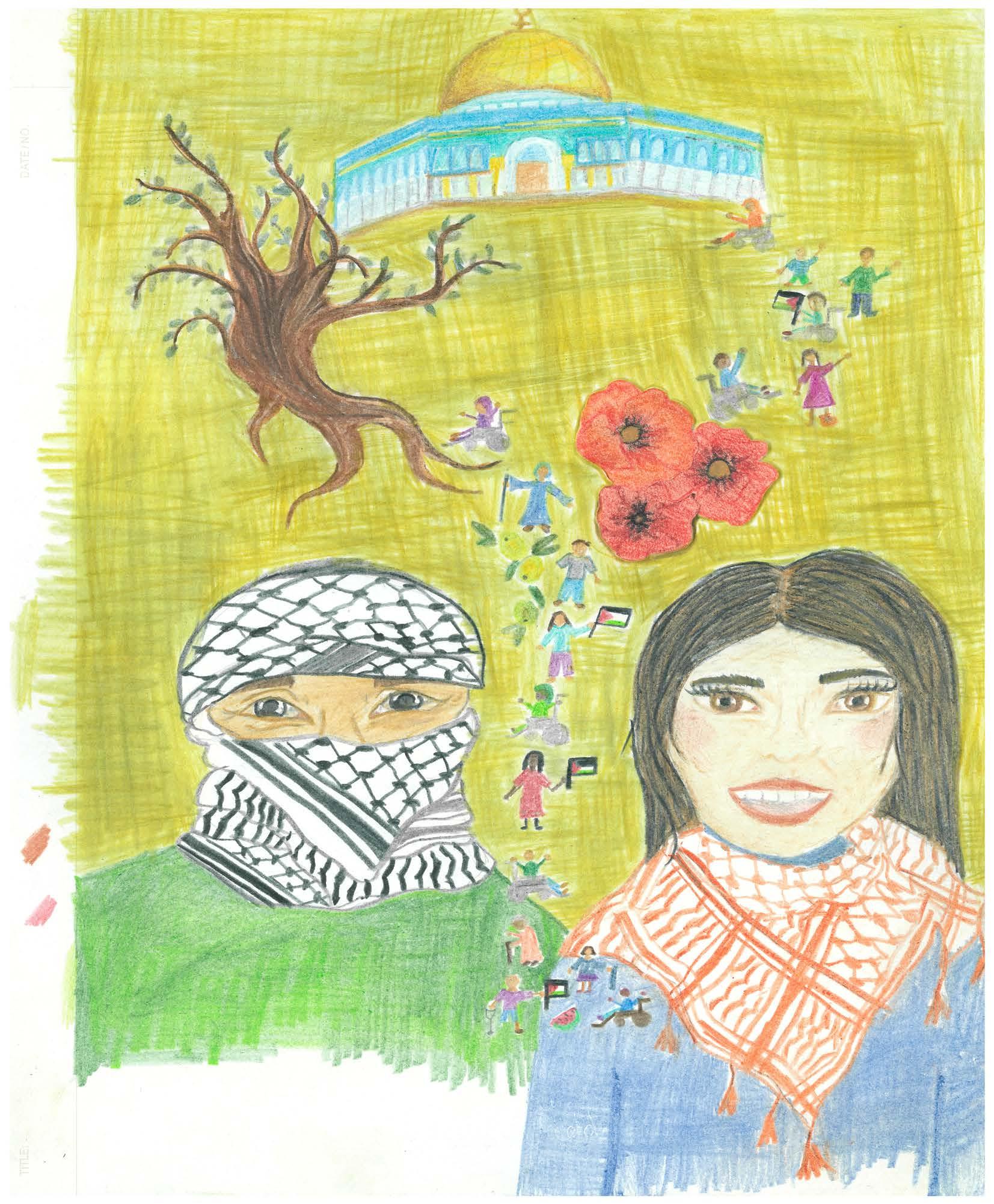


PROUDLY
PRESENTED BY THE DISABILITIES COLLECTIVE

ACKNOWLEDGEMENT OF COUNTRY
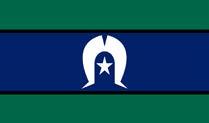
The SRC Disabilities Collective and SUPRA Disability and Inclusion Network recognise that our activism, advocacy and work happens on stolen, unceded Gadigal Land of the people of the Eora Nations who have, for countless generations, been the custodians of this Land. Indigenous peoples have had to endure significant injustices, despite being one of the oldest living cultures in the world. We are particularly indebted to disabled First Nations activists who fought and continues to fight against injustice.
We are commited to raising Treaty and Truth-telling within our activism as pillars of Indigenous justice going forward. Our collective liberation will not come without commiting to First Nations justice.
In our activism and work, we will uplift the perspective, voice and experiences of First Nations peoples in order to dismantle the colonial and ableist systems of oppression that plague every aspect of this colonial state for these systems of oppressions are intertwined.
Always was, Always will be Aboriginal Land.
TABLE OF CONTENTS
EDITORS
Iggy Boyd, Sandra Kallarakal, Paul Kim, Pooja Kudva, Luke Mesterovic, Ethan Floyd, Annalise Schwarz, Grace Street, Khanh Tran, James Wily, Victor Zhang
WRITERS
Paul Kim, Pooja Kudva, Grace Street, Khanh Tran, Victor Zhang, Ellie Taylor, Sandra Kallarakal, James Wily
ARTISTS
Khanh Tran, Sidra Ghanawi, Grace Street, Bipasha Chakraborty, Victor Zhang
COVER ARTIST
Singh
EDITORIAL
By Khanh Tran and Victor Zhang, your 2024 Disabilities Collective convenors
We hope that you are doing well dear reader. Enjoy this edition of Disabled Honi on liberation for all.
Our front cover by Mahima Singh is an expression of solidarity between disability justice and Palestinian liberation. Our collective liberation will not come without standing together in solidarity with Palestine.
We also invite you, our readers, to our back cover, a rallying cry for everyone to join our solidarity encampment with Palestine demanding the severance of ties between the University of Sydney and Israel, not least Israel’s universities. Universities are not neutral ivory towers, universities are complicit. Our universities must end all support for Israel’s educational institutions and end all contracts with defense firms which has contributed to the genocide unfolding in Gaza.
skies for the Homeland’ etched in gold. Darwish’s dream for peace and love for the land of a ‘bounty of birds’ and the ‘immortal olive tree’ is a powerful one
Yes, this is Disabled Honi. But it is not a ‘normal’ Disabled Honi, if that ever was the case.
We examined the systemic failure of NSW universities’ when it comes to facilitating access to Transport NSW’s disability concession after hearing from multiple stories of students missing out on cheaper fares. We also reached out to the current USU candidates on their vision for what a disabilities-inclusive USU looks like and analysed their responses.
Ellie Taylor’s easy-read story: ‘Invisible and under 70’ is a powerful narrative on learning to belong in our community as a proudly dyslexic, autistic, and invisibly disabled person. Another piece that, we hope, will spark deeper thought is Pooja Kudva’s perspective on the barriers behind obtaining a medical diagnosis and the internal conversations this should provoke.
This publication was made possible by the Students’ Representative Council (SRC). Get in touch with us via email at:
SRC: disabilities.officers@src.usyd.edu.au
SUPRA: disability@supra.usyd.edu.au GET IN TOUCH
Similarly, our art on pages 1213 takes inspiration from poetry inscribed on the timber walls of Vietnam’s Hall of Supreme Harmony (Điện Thái Hòa), featuring two poems in Arabic by two exemplary Palestinian poets: Mahmoud Darwish’s ‘I am from there’ and Hiba Abu Nada’s ‘Seven
We extend our heartfelt thanks to all of our editors, writers, artists, and contributors. Without your endless patience, we will not be able to put together this edition.
In solidarity, The Editors of Disabled Honi
2 DISABLED HONI SOIT 2024
Mahima
News Neurodivergence Transhumanism Analysis Art Travel concession 4 6 8 10 12 14 Poetry Advertising SRC Puzzles Divest from Israel
16 18 20 22 24
ISSN: 2207-5593. This edition was published on Tuesday 30 April 2024. Disclaimer: Honi Soit is published by the Students’ Representative Council, University of Sydney, Level 1 Wentworth Building, City Road, University of Sydney NSW 2006. The SRC’s operation costs, space and administrative support are financed by the University of Sydney. Honi Soit is printed under the auspices of the SRC’s Directors of Student Publications (DSP): Dustin Dao, Jasmine Donnelly, Lia Perkins, Tiger Perkins, Victor Zhang, Lucinda Zheng. All expressions are published on the basis that they are not to be regarded as the opinions of the SRC unless specifically stated. The Council accepts no responsibility for the accuracy of any of the opinions or information contained within this newspaper, nor does it endorse any of the advertisements and insertions.
What is Disability?
People with disabilities are defined as those “who have long-term physical, mental, intellectal or sensory impairments which in interaction with various barriers may hinder their full and effective participation in osciety on an equal basis with others ”. as per the United Nations Conventions on the Rights of Persons with Disabilities . A disability is any condition of the body or mind (impairment) that makes it more difficult for the person with the condition to do certain activities (activity limitation) and interact with the world around them (participation restrictions).
Disability can be permanent or temporary, visible or invisible. And in the context of higher education it’s important to appreciate that having a disability does not mean one is less suited to be a university student, it just means that one might need accommodations and support to achieve academically.
Discrimination on the basis of disability is prohibited by the federal Disability Discrimination Act 1992 and the Disability Standards for Education 2005 , these laws enshrine in law the rights of disabled studens to access education “on the same basis” as nondisabled students.
You have the right to:
- Use an assistive device or mobility aid
- Be accompanied by a carer, interpreter, reader, or an assistant
- Be accompanied by a guide or hearing dog or other trained assistant animal
- Access reasonable adjustments for lectures, tutorials and assessments so that you are not disadvantaged by your disability
- Access lecture materials in a format that you can understand
- Seek redress for abuse or harassment on the basis of disability
Inclusion and Disability Services (IDS)
IDS is the main point of contact for accessing disability accommodations during your study. Some of the adjustments they can arrange include:
- Assessment and exam adjustments, including extra time, smaller exam rooms and use of a computer.
- Timetable adjustments
- Alternative formatting
- Access to assistive technology
- Lecture support
Contact Inclusion and Disability Services:
Phone: +61 2 8627 8422
Email: disability.services@sydney.edu.au
Fax: +61 2 8627 8482

3
Scan here
Inclusion
to register for
& Disability Services

Disabilities Community Room launches at Manning House
Khanh Tran reports.
On Friday 19 April, the Disabilities Community Room was officially opened by the Disabilities Collective (DisCo) in an event with representatives from the University of Sydney Union (USU), Sydney University Postgraduate Students’ Association (SUPRA), and DisCo members.
Welcoming the launch of the Room, USyd Associate Professor Shane Clifton and former Policy Director with the Disability Royal Commission between 2019 - 2023 said that the space represented a step forward in the disabled community’s history at the University. Striking a similar note, 20212022 SRC Disabilities Officer Sarah Korte told the room that it was “surreal that the room is finally here”.
“There was so much that I didn’t know and so much that i couldn’t do due to disability Everything I was able to achieve was due to the support of the other incredible disabled people around me,” said Korte in a statement.
The Disabilities Community Room (DCR or the Room) is open to all students at the University of Sydney, undergraduate and postgraduate, who are disabled, have a chronic illness or mental health condition.
It is split into two zones: a hangout zone and a quiet zone with acoustic panels. It is a safe environment where you can relax, administer medications, have a chat, read books and access information of interest.
It is a joint space between SUPRA, the Students’ Representative Council (SRC) and the USU. The Room is located on Level 1 of Manning House (A23), on the corner next to the lockers near the atrium. The nearest accessible lift is on the ground level of Manning House next to Oakberry Acai.
In 2021 during the peak of NSW’s COVID-19 crisis, SUPRA submitted a joint application together with the USU and the SRC for the Room. The project finally received greenlight following an Honi Soit article in 2022 after a years-long process where Disabilities student office-bearers from both the SRC and SUPRA failed to secure approval for the room due to the University’s byzantine administration.
Request access to the Room via the QR code below. You will need to have swipe card access to enter the room. This form will start the process to grant you this access.

Scan here to request access
Photography by Daniel Smith.

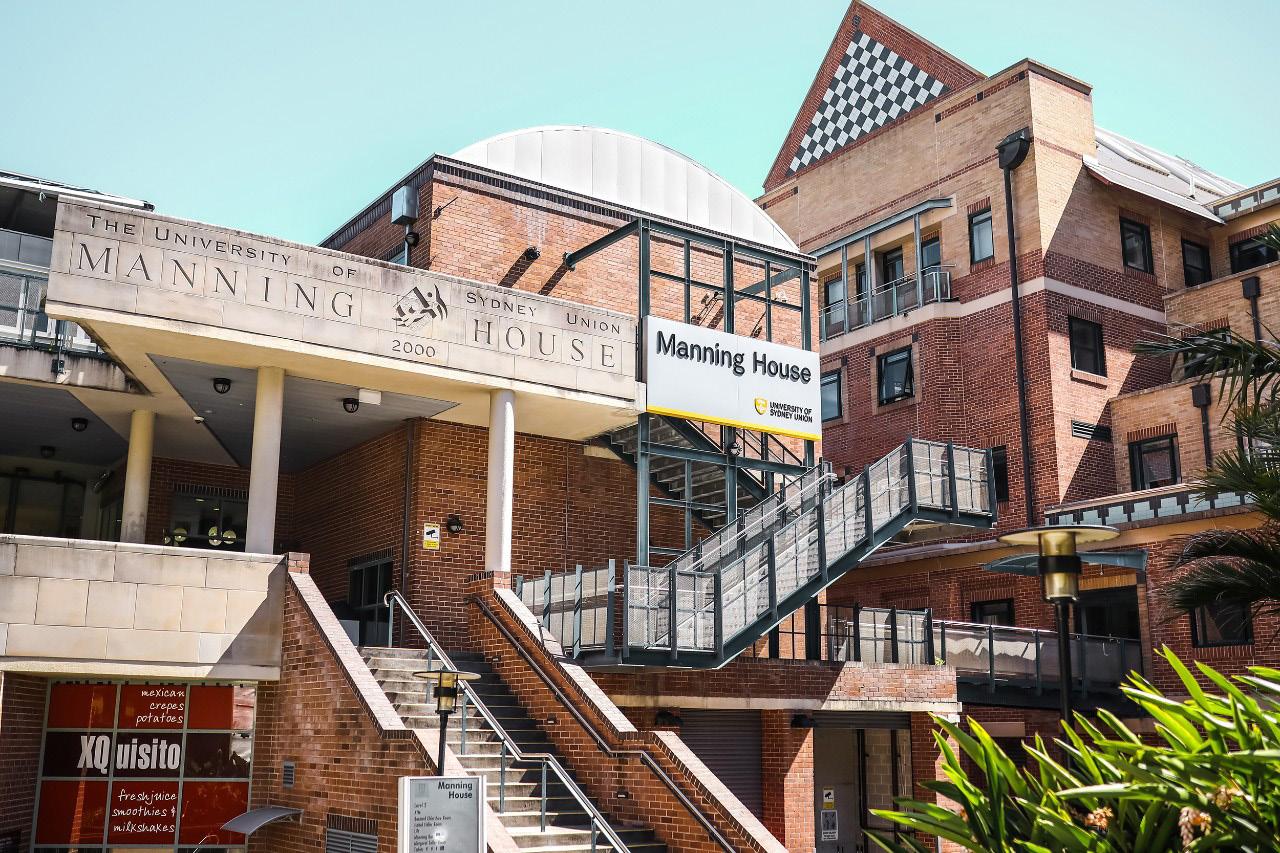

4 DISABLED HONI SOIT 2024


Explainer: What is the University of Sydney encampment?
On Tuesday April 23, students and staff activists from the University of Sydney and other universities came together to camp in solidarity with student encampments at Columbia University and Barnard College. It is located in front of the University Quadrangle with protesters bringing tents and banners to campaign against Israel’s genocide against Palestine.
Columbia’s encampment has sparked solidarity encampments and protests across the United States with dozens of universities joining in Columbia’s lead. At the time of writing, active encampments are now in Texas (UT Austin), California (University of Southern California, California State Polytechnic University in Humboldt), Connecticut (Yale University and University of Connecticut), Stanford University, Emory University, and many others. An encampment has also been established at Sciences Po in Paris.
The encampments in the U.S have resulted in hundreds of arrests. Republican speakers have called for the Biden government to call in the National Guard, which, if followed through, would mark the first time since 1968’s anti-Vietnam War protests that U.S states decided to send National Guard units to suppress protests.
Why is the encampment happening?
One of the focuses that the encampment is drawing attention to is the fact that more than 34,000 Palestinians, including more than 16,000 women and children, have been killed by Israel since 7 October. At the University of Sydney, the primary focus of the encampment lies on the ties that the University has with Israeli universities such as Tel Aviv University and its relationships with weapon manufacturing companies Thales and Elbit Systems.
Earlier on 19 March, student activists from Students Against War staged a successful sit-in protest at Tel Aviv University’s presence at USyd’s Study Abroad Fair, forcing TAU’s representatives to leave the Fair. Similarly, Thales and USyd maintain a strong relationship following the renewal of the University’s 5-year Memorandum Of Understanding in 2022.
However, the encampment also focuses on Israel’s system of apartheid against Palestinians, including in the Occupied Palestinian Territories in the West Bank. Palestinians living in the West Bank are subjected to military law while Israeli citizens live under Israeli civil law, creating a parallel and unequal legal system in which Jewish Israelis enjoy civil rights and access to water, food and other civic infrastructure that are tightly controlled by Israel.
In 2021, Human Rights Watch released a landmark report, ‘A Threshold Crossed: Israeli authorities and the crimes of apartheid and persecution’, acknowledging the decades-long occupation of, and discriminatory rule over, Palestine by Israel.
“Israeli authorities methodically privilege Jewish Israelis and discriminate against Palestinians. Laws, policies and statements by leading Israeli officials make plain that the objective of maintaining Jewish Israeli control of demographics, political power, and land has long guided government policy,” the report observed.
In 2004, the International Court of Justice issued a judgment against Israel’s construction of walls in Palestine in the West Bank: “The Court concluded that the construction of the wall, along with measures taken previously, severely impeded the exercise by the Palestinian people of its
right to self-determination and was thus a breach of Israel’s obligation to respect that right.”
Further, Israel currently holds thousands of Palestinians without charge in its prisons. According to the Associated Press, as of August 2023, Israel imprisons more than 1,200 people without a charge or trial, with an estimated 99 per cent of the detainees being Palestinians. Earlier this month, the country drew international outrage for refusing to release the body of Walid Daqqa after his death in custody, a 62 yearold Palestinian man who was jailed over the death of an Israeli soldier, a charge Daqqa denied.
What to expect and how to get involved
The University of Sydney encampment is set to continue until its key aims are met. These are: the University’s divestment from weapons manufacturers such as Thales, the University cutting ties with Israeli education institutions, and the NSW Minns government dropping charges on pro-Palestinian protesters.

5 WEEK 10, SEMESTER 1
Sandra Kallarakal explains the encampment at the Quad Lawns.
Photography by Ishbel Dunsmore.
Embracing neurodiversity
Anonymous navigates university as an autistic student.
Before Uni
Ihave never considered myself a disabled person, but then again my life before USyd was very different. I never told anyone.
I was an executive in the global financial services industry, a fairly cut-throat environment. Is there awareness of neurodiversity in these environments? Yes, but it’s lip service. There’s a big difference between awareness and acceptance. In competitive, bonus-driven environments, people take advantage of you.
I’d had enough of “masking” my condition, which was becoming more and more difficult. After almost thirty years in the industry, I left and decided to pick up some political writing. I had been doing that, and I formally retrained in social sciences, a totally different field. Now here I am!
The Holy Trinity
I have the holy trinity: ADHD, Bipolar and Autism, diagnosed some 15 years ago. I take daily medication for regulation and have a medical team to assist my needs.
I have a style of thinking, behaving and communicating which, despite my best intentions, can be misinterpreted. I struggle to pick up on social cues and I can get very stressed when things are out of a rigid routine. This doesn’t necessarily cause stress; I often am fine for weeks on end.
That’s just me. We’re all different; our truism trope is “when you’ve met one autistic person, you’ve met one autistic person.” Given that, is it really our trope?
Coming out with a Sunflower
After masking for so long it was very difficult for me to admit to myself I had a disability. It took months of therapy to work through this and to reset my view of autism and the significant advantages it can offer.
When I started at USyd, I decided to disclose my conditions outside of family and close friends for the first time.
And it was a very small detail that convinced me: a sunflower.
I noted the University had an Inclusion & Disability page with a comprehensive set of resources and support services. One stood out in particular, the Hidden Disabilities Sunflower initiative. A symbol worn by students to indicate that they have a hidden disability. A “don’t panic” or “I may need some assistance” flag, similar to wearing a diabetic or penicillin allergy tag. It gives a sense of safety and acceptance to those wearing the beautiful little symbol on a lanyard, pin, badge, or wrist band.
In all my years of corporate neurodiversity training I had never heard of this initiative, even when working in the UK, where the initiative started.
So what’s in your head?
“Fragmented, networked, incremental, and best offline” would be an apt description.
I think autism gives me a unique analytical style. I can see relations in things that others may not. I think logically, visually, and literally. I’m big picture oriented and detail oriented at the same time.
My brain furiously runs on multiple things at once.As I’m writing this I’m flipping between this article due today, two assignments due this week plus some external writing and trying to stroke a very attentive cat whilst being distracted by the slightest external noise.
For autistic ADHD-ers the challenge is establishing a routine whilst minimising distractions and maintaining focus.
I’ve got a myriad of techniques and systems to manage this. Everyone does to a certain extent. That is, being ‘organised’. The challenge for me is that they all work together. If one thing isn’t in place, whether it be note taking, filing systems, noise cancelling or daily routine, the whole lot doesn’t function. Trying to keep everything in place with pre-planning, whilst making room for incremental learning at Uni, is exhausting.
At University you need to think, focus, and collate lots of information and be able to write and produce work. On time. When you have cognitive differences this can be pretty challenging. Bear in mind that I’ve been working operationally in industry for many years, which is arguably less challenging academically.
Distractions are one of the biggest challenges. Autistic people have ‘special interests’ and can lose track of time researching topics to the deepest level, often uncovering new ideas. I’ve channelled this more productively into investigative activism, writing on social justice issues – but that doesn’t help when you struggle to write the essay that was due yesterday. You’re just settling down when one fact you’ve remembered from a decade ago, perfect for your writing, pops into your head and you switch back to that and go down the next rabbit hole of research.
Through necessity I’ve become an expert at masking and I seek privacy when I do have an episode.I’m only on campus certain days, so it would be rare to observe my true self. Many people would just see my somewhat erratic behaviour from time to time not being aware of what's going on in my head every minute.
The net result of the above is that I can appear an isolated individual despite being a living, feeling human with the best of intentions.
This is where I think someone trained with some empathy might look at my hidden disability sunflower and put two and two together more sympathetically for me. It gives me a sense of comfort, particularly if I’m not aware of my interaction difficulties at the time.
How has the University Helped?

USyd has been supportive starting with registering with the IDS website.
I applied on the website and had to provide an impact statement of my conditions in the context of USyd’s learning environment. I met with my GP and medical specialists to discuss this and we put together impacts relevant to university and I heard a term for the first time from my GP: “reasonable adjustments”.
I think we’re all familiar with general student assistance, such as simple extensions and special considerations. For disability, there is also the concept of reasonable adjustments. These are adjustments appropriate to your disability to give you an accessible and equitable learning experience, though this isn't always the case for all students.
After my application I met with a Disability Support Officer who interviewed me, worked through some reasonable accommodations for my conditions and produced what is called an Academic Plan. This had adjustments to assessment such as more time for assignments, exams
6 HONI SOIT 2024
DISABLED HONI 2024 6

Invisible and under 70
Ellie Taylor narrates her experience as a dyslexic and autistic person.
To me, this is a disability, that l has struggled with because when I try to put something on paper it all doesn’t make sense, or it does not want to write in the first picture with can be cit restrictions of what I am trying to convey.
I don’t have some words so I use words that are big or have to spell. This can be a bit of a confusing thing. It's a learning and developmental disorder that affects 10 per cent of people in society. This disorder affects reading, writing, and spelling.
When I was younger, I had trouble reading books that were at my age level and instead read books that were below my grade level. Some people think that letters and words get flipped around in our brain, but that's not true. Our brains just function differently, and we struggle with pronouncing words and learning in the same way that others do.
I have two disabilities that are hidden, and while they don't always affect me, I struggle with doing everyday things like grocery shopping and having a social life. That's why easy reads are so important for people with learning disabilities. Our brains do not work in the same way as other people do so it can be very hard to understand things and that’s why easy reads are so important because they give the information using keywords in sentences.
Intellectual disability
This is also a hidden disability. It is hard to get help because people cannot see your disability, so it is hard to get help. I have been told that “I don’t have a disability”. But I also told that I don’t ‘look like’ I have a disability. This is not the case, so people like myself just have a hidden disability. Intellectual disability has been hard together with dyslexia. An Intellectual disability is under 70 on an IQ test.
Why is it so important to have early reads for learning disabilities? Easy reads are not just easy but they have all the information. And l like to learn in way easy read just easy, but sill have all the information. This

and recommendations to other support services.
The plan lists in detail the ways my conditions affect my ability to study without the necessary reasonable adjustments. It also lists those adjustments and doesn’t state my conditions, for the purpose of confidentiality. It is then circulated to unit coordinators and my home faculty.
It is up to students if one wishes to engage their lecturers, which I did. I was open about my conditions and had good, supportive discussions with them.
Similarly, other services have been invaluable. The use of quiet rooms in the library and in the Manning Building after a day spent in sensory overload amongst thousands of fellow students.
Another regularly used tool has been accessibility software. With this I can convert PDF readings to MP3 files for offline listening rather than reading, which is much more effective in my ability to focus and retain information.
is great that this is out here of learning disability. People say works and letters flip around in our brain and, of course, this is not true.
Our brains are processing words. I believe there is a correlation between my dyslexia and also intellectual disability. There are so many celebrations such as in International Day of People with a Disability, Disability Pride Month, and neurodiversity celebrations week.
I have two different invisible conditions. I want to give a voice to those who have an invisible disability as someone who has an invisible disability. This disability is neurodivergent. Belonging to a community is wonderful because it means that you are not alone.
Because you have people that you can rely on. It is a safe place because you feel like there is no judgement. It is also a safe place to tell your story and about what it is like to grow up with an intellectual disability and dyslexia. It's all about support. And celebrating everyone’s disability.
It is great to be understood. Being a part of the hidden disability community, I feel like I was alone and now I am part of a community. I have been able to one be to get my identity to be a big part of being me and have a community and having allies as part of your community. They help me advocate for myself and also the whole hidden disability community.
When I meet people for the first time, I can proudly say that I am part of the disability community. But I have not got the courage to tell people that don’t have a disability that I have a disability. But I won't be because I am scared of being judged by society.
But now I identify myself as someone with a disability. I am not afraid to tell people how I really am and not try to hide how I am. I have slowly stepped into my disability.
Ellie Taylor is an alumni of the University of Sydney.
My only concern would be that in receiving an additional tuition session for a subject, one tutor mentioned without complaining that they did not get paid any extra for this. It was just one catch up but it could have been many and I think an allowance would go a long way here for busy tutors and lecturers assisting accessibility.
The Future
So my first experience of disclosing my conditions in what is my new (academic) workplace has been a great experience.
A liberal education institution is no financial services bear pit. At the same time the support and acceptance could easily have been much less.
I won’t lie, the demands of a postgraduate workload with my differences in cognition are still incredibly challenging. This is particularly the case with my inability to connect with fellow students to discuss the course and socialise as others might do.
However it has been great to have such a supportive framework in place and a tremendously accommodating experience so far for me as I navigate my studies.
7 WEEK 10, SEMESTER 1
WEEK 10, SEMESTER 1
Transhumanism and the stigma of disability
In mainstream media discourse, the term ‘disability’ or even the notion of it can conjure up a whole range of negative stereotypes and entrenched stigmas. In most cases, the way the notion of disability is presented is likened to a state of condition that needs to be ‘fixed’ or ‘cured’. And of course, when we say someone needs ‘fixing’, the first immediate thought that is raised is that that someone is deficient in something; a loss of positive value. This kind of rhetoric drives much of how the media construes and facilitates discussions surrounding disability; when such rhetoric is employed, one only has to imagine the damage this can inflict upon people who identify as being disabled.
Fortunately, many disabled communities have made an effort to push back this rhetoric, proudly advocating that disability is not a deficiency, nor should it be a debilitating condition but a reflection of each person’s uniqueness and the expression that we all come in different shapes and sizes. Following in pursuit with these communities, disability pride is pivotal to undoing the implicit ableism in the way disability is conceived and opening the doors for non-ableist thinking, but it can be better accommodated by transforming the notion of disability.
The kind of thinking that there is a standard for what constitutes a ‘normal’ human being and that disabled individuals are exempt from this categorisation finds its ableist roots in the founding philosophy of humanism. It must be noted that humanism as a whole has many different connotations — I shall only be focusing on a particular strand, evolutionary humanism, which appears to be the dominant underlining, even scientific view, of our discourses surrounding disability. Already, we can see why it is problematic, especially with the implications of using the label ‘scientific’.
Much of how we understand disability and how it impacts affected individuals is from a biological and evolutionary standpoint. Evolutionary humanism is then understood to be humanism mixed with evolutionary theory, espousing the view that the evolutionary process is fundamental to helping humans exercise and develop their existential autonomy and moral agency in determining their own lives and creating a meaningful existence. A definition like this situates evolution at the forefront or even as the grounds upon which we are enabled to self-determine.
However, such a definition lacks con -
sideration for how we should integrate the notion of disability into the picture of what it means to be a human being. We do not want to be saying that disabled people are not humans and that is certainly not the case with mainstream media discourse; so, what is the alternative? Is there even any?
I suggest that we need a more transformative understanding of what disability entails. It is simply not enough to justify this view that disabled people are simply unlucky or naturally impeded by biology and we can do nothing about it. We can do something about it! We are not limited by what disability is, but we are limiting what disability can be and should be.
Instead of evolutionary humanism, we should be saying that disabled people can afford for themselves a meaningful existence without the strictures and contours of what society imposes: to be proudly identified as being disabled and enjoy an equal status with those who are nondisabled.
Luckily, evolutionary humanism isn’t all that there is to humanism; there is an -
other strand of humanist thought that can bolster the cause of disability pride and bring about a transformative discourse to the scene—transhumanism.
Transhumanism divorces itself from the need to centre around the evolutionary process; instead, it is transformative because it transcends our physical limitations—our biology, our evolution—and maintains that we can be human, in fact, more human by focusing on our humanity. It proposes that we use technology to help us enhance the human condition through augmentation or expansion of our human abilities and capacities. Thus, it is not to be seen as a substitution of our inherent humanness, but a supplement to who we already are—affirming disability pride and confirming that our humanness is not tied to a specific condition or diagnosis.
What it means to be disabled is no longer wrapped up with notions of debilitation, deficiency, brokenness because it is no longer necessary to conflate one’s biology with one’s humanity. One can be severely limited by their disability and still retain their full humanity because their humanness is not dependent on what they are but on who they choose to be. And who they choose to be—this possibility of choice—is the gateway to what can be. If one is to take pride in their disability then one ought to be proud of who they are.
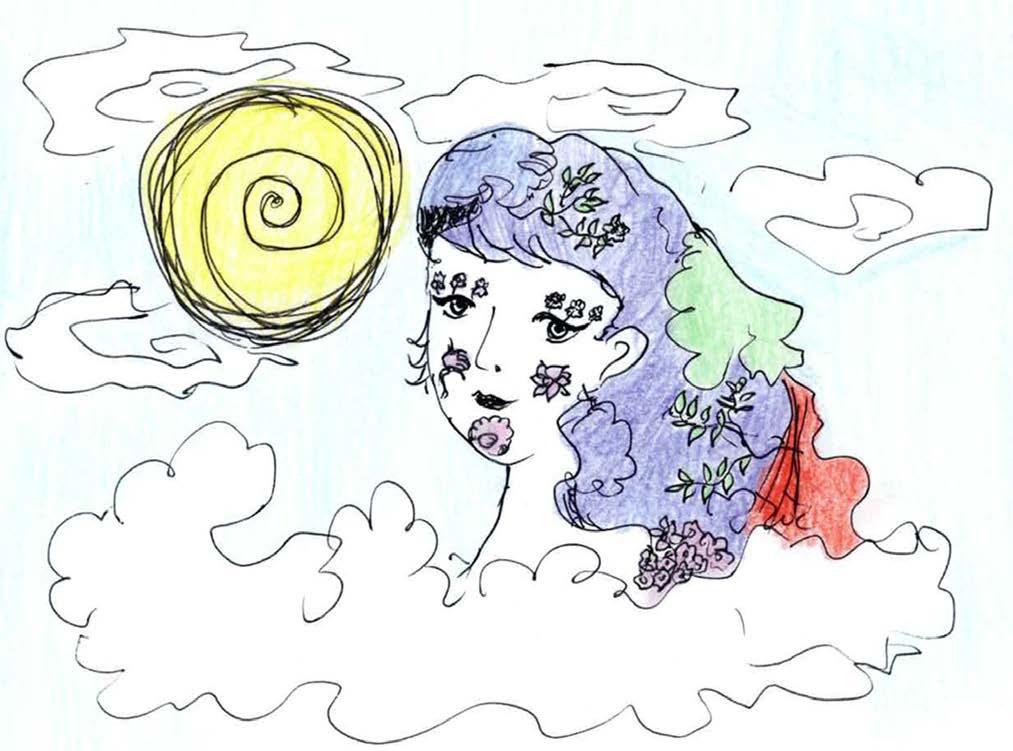
DISABLED HONI 2024
Paul Kim transcends our physical limitations.
8
Art by Khanh Tran

"You pay more to exist": Inside the fight for paid placements
After years of being ignored by governments, universities and union bureaucrats, the crisis of unpaid placement-induced student poverty and burnout is reaching a peak. As rent and food prices soar, and a further increase in HECS indexation rate has been announced last week, it is soul-crushing to live in a world that seems to have such a disdain for young people and students wanting to work in essential fields, such as nursing, education, and social work.
In our context of broken welfare, childcare and health systems, the fact of not paying students for hundreds of hours of labour in community-based studies is both archaic and dystopian. Whilst this exploitation is wholly unfair for any student, this systemic failure concretises the current state of higher education as expensive, inaccessible and elitist.
I sat down to interview with Mai, the force behind the Queensland branch of Students Against Placement Poverty (SAPP). As an unpaid carer for her daughter, and a disabled person herself, Mai and I chatted as members of the SAPP campaign about the experiences of unpaid placements for disabled students and student carers.
Mai is undertaking a Masters of Social Work and has a background in Sociology and Counselling. With an interest in trauma, social work, and helping young people, Mai has been a vocal advocate for paid placements and for policy to help marginalised groups, focusing on systemic change.
Despite the value of this knowledge, Mai emphasised that study in these fields is “not lived experience friendly,” referencing the curricula, study loads, and requirements for placement of both professional boards and universities.
Her personal experiences meant that she knew to question the course’s focus on Cognitive Behaviour Therapy (CBT) as a blanket psycho-social intervention for mental health conditions, and helped her to see how these curricula and services were part of a broken system.
This is important to clarify. Mai emphasised that marginalised and disadvantaged students are not failing — they are just not accommodated for, and cannot afford courses requiring placements. Despite her humility, she shared that herself and many of her peers are on the Dean’s List, and are perfectly qualified and suited to these courses and jobs.
We discussed the hypocrisy of fields like Social Work and Nursing being inhospitable to its students, while their Codes of Ethics emphasise safety, the “inherent dignity and worth of the person,” treating “each person in a caring and respectful fashion, mindful of individual differ-
ences and cultural and ethnic diversity”.
Yet, students in these fields are exploited and disempowered — planted in “poisoned soil” to be “cut off before you can even grow.” For these fields that are so essential to the community and as we face crises of shortages of health workers, early childhood educators and carers, aged carers, disabilities carers, it is a slap in the face for both students and our communities.
As announced in October 2023, police students in New South Wales are now being paid more than $1300 a week for 16 weeks of study to address NSW’s shortage of officers. Yet this is an institution that has always targeted marginalised groups such as First Nations peoples and gender diverse people, it is deplorable that the government has not yet implemented any compensation for students of nursing, social work, and education who directly work in and with our communities.
Mai further notes that there is a necessary “cognitive dissonance” for teachers and supervisors to teach about care and community work while their students struggle. It is a luck of the draw when it comes to supervisors, who can make or break students’ experiences with placement.
“A lot of us are facing homelessness, or housing insecurity, or skipping meals, or getting [...] red bills in the mail.”
Students, unions, professionals, the National Union of Students, and now even the Universities Accord Report have denounced placement poverty and called for ending unpaid placements. The Report, however, fails to incorporate existing calls for the government to revise the Fair Work Act to ensure that unpaid placements become illegal, and merely recommends that students on placements be offered funding, rather than wages in line with industry standards.
Students Against Placement Poverty have been unapologetically vocal and have had recent successes across a National Week of Action from April 8-12 with forums, a rally outside of the Commonwealth Minister offices in Sydney, and events in Queensland. With this pressure, paid placements have made their way into discussions around the 2024-2025 Federal Budget, to be announced in a few weeks time.
Regarding considerations for disabled students and student carers in potential policies, Mai emphasised the need for a model of compensation that does not interfere with students’ pensions, and accounts for extra costs of placement.
She shared concerns of people being disqualified from their Youth Allowance, carer pay-
ments, or disability support pensions if they receive remuneration in an unhelpful way, such as not being tax-exempt, or a large sum not spread out over placement weeks, that jeopardises their eligibility. Placements must also provide for superannuation, particularly since pensions do not, and must go beyond the minimum wage for hours worked to include the costs of uniforms and transport. Mai also cited ‘the disability tax’ — noting that you “pay more to exist as a disabled person” and to care for people, referencing examples of forking out more money for convenient meals and for late fees, often due to being short on time or struggling with deadlines.
However, of course, we pointed out that broken welfare systems, a rental crisis, and unsatisfactory calculations of a ‘living wage’ underpin many of these concerns. Paid placements and better conditions for students are just the tip of the iceberg, but are worth the fight due to the adverse effects they are currently having on whole cohorts of students, and the ways in which they harm already marginalised students.
Mai also called for a re-imagining and re-envisioning of regulatory peak bodies and capability frameworks for students. The peak bodies are unnecessarily bureaucratic and lack transparency in deciding the number of hours of placement that students must complete. For a dual degree of nursery and midwifery, 1700 placement hours are required. During 2020-2021 under COVID-19 restrictions, students’ placement hours were made more flexible and reduced by up to 20% under a modified Australian Social Work Education and Accreditation Standards (ASWEAS).
The research of Professor Christine Morley, Head of QUT School of Social Work, highlights the unsustainability of the current placement model, and calls for changes to the Fair Work Act to make unpaid vocational placements illegal, to pay students a minimum wage, and to reform the measurement of learning towards meeting qualitative outcomes instead of a number of hours.
For her Masters of Social Work, Mai has completed one round of a 500 hour placement and has another to go. She says, however, that she had already met the capability requirements after 250 hours of placement due to her prior studies and work — meaning that the further 750 remaining hours are unnecessary.
It is undeniable that placement poverty and burnout prevents students from properly learning on placement, and an excess of required hours “cannot justify the harm that it causes.” We are facing a worsening of our current crisis — both in terms of graduation and employment numbers and in terms of the professional capability of those who make it past placement.
9 WEEK 10, SEMESTER 1
Grace Street interviews an organiser from the Students Against Placement Poverty campaign.

What happens in the void?
Pooja Kudva navigates support
Diagnosis
Owithout a formal diagonsis.
n March 13, 2024, I was wildly pacing around my room on a phone appointment with my psychologist. She was telling me that my assessment results came back positive, and that I officially had ADHD.
However, hearing those words didn’t give me relief that I finally understood what had been going on mentally. In fact, I had all but known about having ADHD for years - getting the formal confirmation was, to me, merely that: a confirmation. It had taken two years to attain that diagnosis and all the while I was stuck in a void of sorts, aware of my disabled status but unable to “prove” it.
It made me ask: Why did it take so long?
Of course, as I was reminded by some friends recently, I do not need a formal diagnosis to be disabled. Whether someone diagnoses me or not, I and the rest of the world can clearly see my disabilities manifest through my restless or exhausted demeanour, conversations that tend to stray off-topic, and my scattered and often lateral trains of thought. I know that my professors can certainly see it in my inconsistent work ethic, inability to complete or submit certain assignments on time, and repetition of certain units.
However, as you can imagine, simply walking up and asking: “Hey I have ADHD, can I get some aid please?” doesn’t help when applying for accommodations at University or beyond. Proof in the form of an official diagnosis is the only acceptable first step.
As such I became fixated on obtaining that diagnosis, which slowly warped my own perceptions of my disabled status:
“Without a diagnosis, would anyone believe me if I explained myself?”
“Am I actually disabled if I cannot back it up with medical proof?”
“Do I actually have ADHD, or am I just lazy and looking for an excuse?”
“Will getting a diagnosis dispel my loved ones, or affect my future career prospects?”, and
“Is it worth waiting this long for something that may not help much anyway?”
Not to mention, my path isn’t completely over. I am still undergoing the process of assessment, except this time for Autism. I suppose that means the void continues on, but just a bit smaller than before, with new questions.
Barriers
I could go through the process of getting this diagnosis, but I doubt it’d help much. Everyone has a different story and circumstances, either about diagnosis or for the barriers that prevent it.
As I have experienced, the ability to get diagnosed at all is a privilege costing money, time, support, energy, and motivation.
Common barriers for access to mental health services or obtaining diagnoses include high expenses (psychologist sessions, psychiatrist sessions, medication, assessment costs, etc), physical access to services and communication barriers (increased difficulty in accessing services in rural areas), stigma and discrimination (personal, academic, workplace, societal, etc), and months-long wait times for appointments with practitioners, among others.
I consider myself extremely lucky that I had my family and friends as a solid support network and could afford the relevant fees for psychology and psychiatry sessions, assessments, and additional paperwork from a practitioner at various points (like special consideration forms). I have a relatively stable home life and I live in a city where I have fairly easy access to treatment, either in person or over the phone/internet. Not to mention, I somewhat knew about the process of getting assessed and finding additional resources when I started out.
In other words, even though my own path to diagnosis wasn’t easy, I am one of the lucky ones.
Support
All this being said, I wish I had someone in my earlier years of study to guide me through the processes, at least where university help was concerned: showing me the Disabilities Collective, navigating processes such as Special Considerations, applying with Disability and Inclusion Services, going through the appeal process and consulting an SRC caseworker, talking to my professors, changing my course progressions and going to the associated meetings.
Most of all, I wish I had been better at handling the more personal aspects of being disabled but not diagnosed: the immense confusion, the identity crises, the isolation of being left behind while everyone else moves on, knowing when to ask for help before it’s too late, and understanding how to practice basic and consistent self care.
Maybe then I could have done more in the past two years while waiting to be diagnosed. My disabilities aren’t my entire life, and cannot be — the rest of life goes on in the meantime.
Instead, while currently in my fifth year, I’ve realised how much I had to figure out mostly by myself and how exhausting and demoralising it’s been. I hope that for anyone else (diagnosed with a disability or not!) going through the same overwhelming confusion, angst, fatigue and isolation, that I can be the
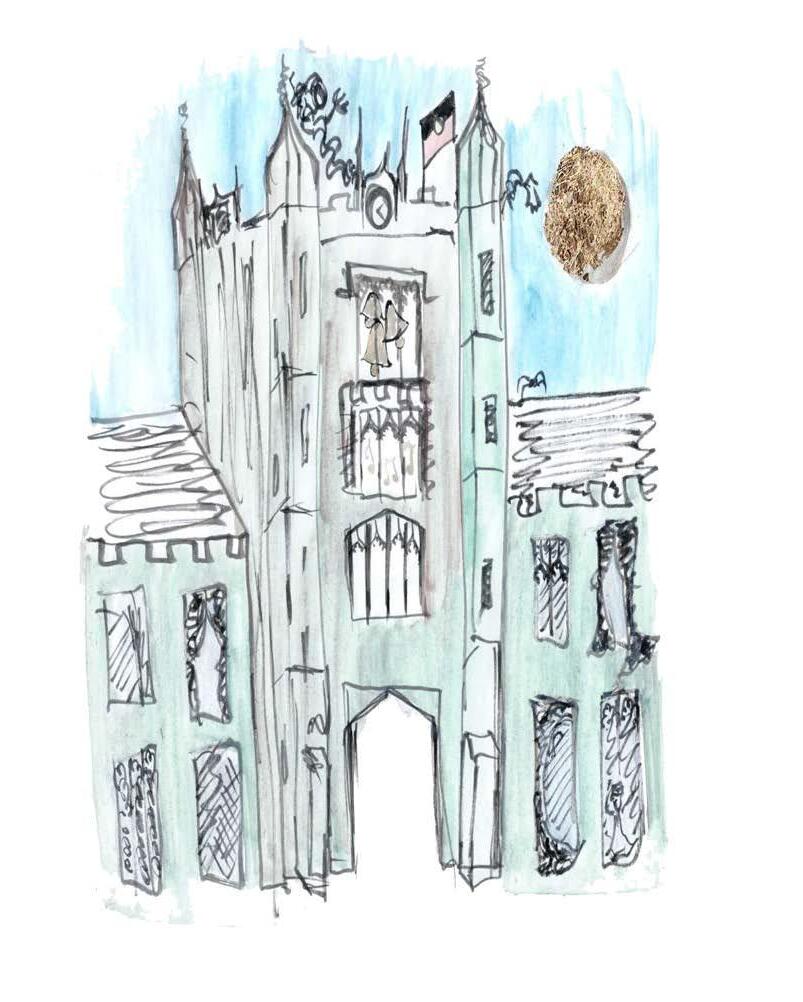
So, if you see a short Indian girl on campus with braided (and sometimes brightly-dyed) hair, playing with her fidget ring or listening to music, it might be me. Please feel free to tap me on the shoulder and ask for help — I cannot promise that I will know every answer, but I will do my very best.
Art by Khanh Tran
10 DISABLED HONI 2024
systems

The USU’s DIAP: An analysis of the 2024 USU Board candidates’ vision
Khanh Tran and Victor Zhang analyses.
As campaigning commences for this year’s University of Sydney Union (USU) elections, candidates will undoubtedly shower student voters with a plethora of promises and SSAF bullions. Among the issues that elected Board Directors will have a say over is the planned Disabilities Inclusion Action Plan (DIAP).
Under NSW law, all large public organisations are required to institute their own DIAPs in compliance with a set of guidelines issued by the state government. Indeed, the University has its own 2019-24 DIAP, meaning that a formal report and planning for a new plan will be undertaken over the course of this year.
Once a USU DIAP is implemented, the organisation will be bound to realise its actions and required to report on the Plan on a basis determined by the Board.
The USU’s DIAP started during the presidency of Cole Scott-Curwood (2022-2023) and continued on to current President Naz Sharifi. It also featured in the campaigns of multiple incumbents, including current Disabilities Portfolio Holder Grace Wallman. It is one of two strategic plans aimed at improving the union’s inclusion of students and staff from traditionally underrepresented communities, with the other being the Reconciliation Action Plan (RAP) that concerns the USU’s relationship with Aboriginal and Torres Strait Islander people.
Will a DIAP make a difference to disabled students and staff?
Here lies one of the major criticisms of DIAPs. Major state organisations, including the larger University, are required to design and implement their own DIAPs under the Disability Inclusion Act 2014, the last major reform to disability planning legislation since 1993 following the codification of the landmark federal Disability Discrimination Act 1992.
One, a USU DIAP will mean that the organisation will have the largest say over the priorities of the Plan. The USU’s election cycle largely subjecting the Plan to the ideals of the Board with base requirements from the law.
were far more common. Even then, because employment-oriented actions in DIAPs often amounted to “standard employment practices”, material improvements to discrimination in employment practices for disabled people through DIAPs is limited.
However, one can argue that, on the flip side, where DIAPs do shine is enshrining a continual and consistent responsibility on state entities to commit to disability inclusion, rather than leaving disability inclusion planning to anarchy and the whims of administrators.
Analysing candidates’ vision for the DIAP
We requested this year’s crop of USU candidates to submit a snippet of their vision for the Disabilities Inclusion Action Plan.
On one hand, our candidates have a broadly strong commitment to improving disabled students’ participation in university life through initiatives such as through the creative arts, celebrating disability identity, and improving the USU’s built environment. All candidates were committed on this front. Another worthwhile promise, notably featured in Georgia Zhang and Phan Vu’s responses, is encouraging the establishment of disabilities portfolios across more clubs and societies.
On the other hand, a major and glaring omission from the majority of candidates was any consideration for USU staffs’ rights at all except for Georgia Zhang, James Dwyer, and Daniel Park. While Dwyer and Park both considered USU staff, it was solely in terms of pledging to provide disabilities awareness training rather than a concrete look at labour rights or how the union can eliminate discrimination in its recruiting practices. Similarly, Ethan Floyd and Georgia Zhang’s commitment to disabled USU staff is also notably slim other than a passing pledge to include disabled staff in consultations. Though on this note, Zhang’s statement stands out, albeit marginally, as the more solid vision.

USU’s casual and part-time staff are current students or alumni. Disabled staffs’ rights are indivisible from students’ rights. On this front, this year’s candidates will require serious consideration for all staff if they are elected given the USU’s history of laying off staff and limiting hours to 40 per cent during 2020’s COVID-19 crisis.

Further, in terms of furthering disability justice, including action on disability discrimination, limited research on local councils’ DIAPs’ effectiveness by the University of Newcastle’s Katie Butler observed that actions geared at eliminating employment discrimination were rare while actions aimed at improving accessible built environments
Given that the USU presides over the recruitment, welfare and safety of staff, with more than 300 paid employees, including 86 full-time workers. This is no small number. More than $11 million goes to the remuneration of staff or 43 per cent of the union’s expenses. Hence, while this year’s focus on students is laudable — even if undergirded by a strong service provision and student life orientation — it is one that largely ignore staff.
This should alarm us because much of the
Further, Daniel Park poses several intriguing but hard to quantify KPIs including a 50 per cent increase in “tailored mental health services” and a 60 per cent in “academic support services”. What Park specifically means by this is unspecified, whether the mental health services represent an increase in funding or staffing to the university provided CAPS or how academic support services should be quantified. Park also proposes a “career development program” for disabled staff without mentioning consultation with the NTEU or other unions.
Another note is candidates’ tendency to evoke disability ‘inspirationism’, with Naomi Viegas’ vision fitting into this category. Her statement risks falling into what the late Australian disability activist and comedian Stella Young described as “inspiration porn”. Viegas cited Helen Keller’s “journey” as an inspiration to “strive for a better version of myself”, evoking the language of objectification on disabled people for the betterment of non-disabled people that is so prevalent. Those who cite Keller’s name often forget her radicalism as a socialist who fiercely decried employers, anti-strike laws and called for mass strikes. While Viegas is no doubt well-intentioned, the absence of intersectionality and class consciousness is worrying.
As such, as a flurry of DP changes and election walk-and-talk unfold, we urge all candidates to revisit their own vision to act in the interests of not only disabled students, but staff. This must mean all staff because disability justice affects every aspect of the union.
As a single SRC collective representing the voices of undergraduate disabled students, we do not claim to have the same service provision orientation as the larger USU. But we ask our candidates to commit themselves for the greater good of the USU because ignoring staffs’ rights will mean a diminished DIAP to our collective detriment.
Read the candidates’ vision for the USU DIAP in their own words online. Harshita Bandari (NLS) and Angus Fisher (NLS) have yet to respond to Honi’s request for comment. Your silence speaks volumes.
11 WEEK 10, SEMESTER 1



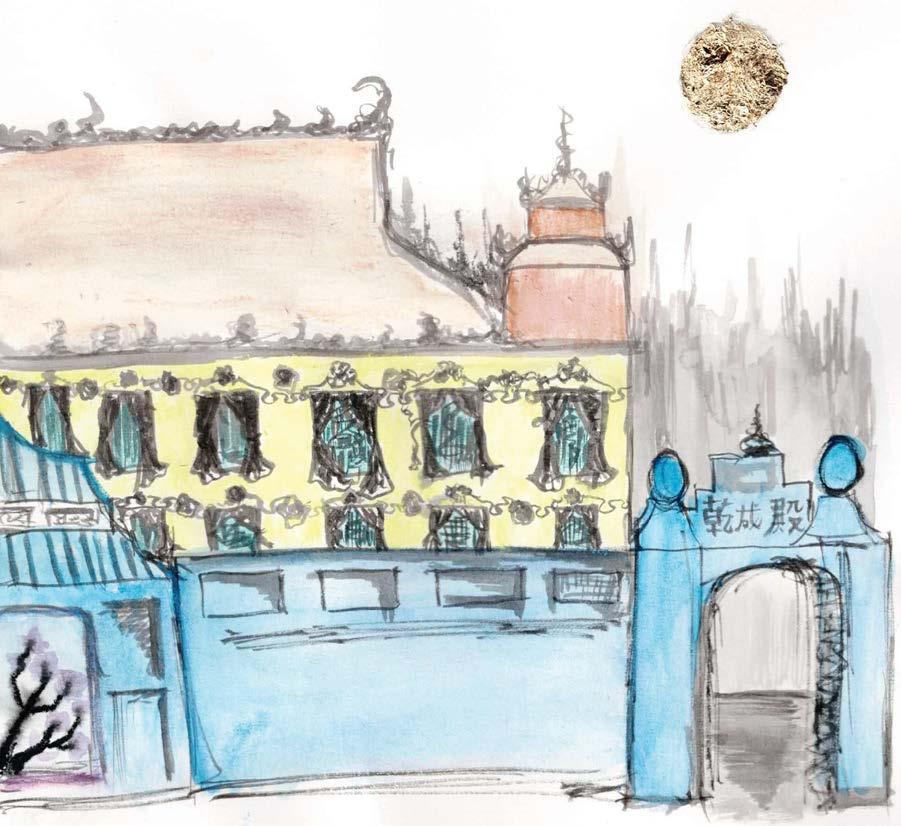

12 DISABLED HONI SOIT 2024
Comic by Bipasha Chakraborty.
‘Liberate Palestine’ by Victor Zhang, 2024.
‘Dawn over the quaint skies of the Forbidden City, Hue’ by Khanh Tran, 2024.

13 WEEK 10, SEMESTER 1
Art by Khanh Tran, Grace Street and Sidra Ghanawi.
Lack of access to Transport NSW’s disability exemptions behind frustration
Khanh Tran looks into the broken state of travel concessions. across NSW’s universities.
Following the NSW Government’s response to the campaign for transport concessions, disabled students at the University of Sydney and many others have voiced frustrations at the dearth of information about eligibility exemptions.
Our analysis of publicly available information on NSW universities’ websites on transport concessions reveals a deeply inconsistent patchwork of information and access to instructions on how to access exemptions, leading to students missing out on more affordable fares under Transport NSW.
According to Transport NSW’s 12-page eligibility guideline, students who cannot undertake a full-time study load due to their disability are eligible to access the exemption, subject to certification from a disability support officer from students’ home university.
The guideline also compels universities and all tertiary institutions to retain “complete and accurate” records of all students deemed eligible for travel concession as a result of disability.In response to a data request from DisCo, the University said that 117 part-time transport concession exemption applications were approved by USyd between 2019 - 2023, working out to an average of 23 per year.
With more than 11,400 part-time students, the majority of which are postgraduates, if one were to apply the current ratio of students with disability at USyd (11 per cent) to the part-time community, then there are more than 1270 potentially eligible students under the disability exemption alone. This makes for a powerful case for Sydney University and other universities in NSW to overhaul information pathways and disability services.
Patchwork of information and absence of clear instructions
A snap poll conducted by Honi Soit on 22 April, consisting of 140 responses, showed that a staggering 80 per cent of students were unaware that some part-time students with disability were eligible for transport concession in NSW — in other words, that the disability exemption existed at all.
Universities across NSW vary widely in how information regarding eligibility for transport concession is provided. Given that the exemption explicitly requires the intervention of universities’ disability support officers,
On Sydney University’s transport concessions online guide, information is scant, save for a new update in direct response to Honi’s request. The newly updated information advises students that where domestic students “have a medical condition or disability” that prevents them from

Results from an Honi Soit snap poll on 23 April 2024 on whether students were aware of Transport NSW’s exemption for some part-time students with disability. The responses were as follows: Yes (28 votes), No (112 votes).
beingable to commit to a full-time load, they might be eligible to register with USyd’s Inclusion and Disability Services (IDS) where transport concession eligibility “can be reviewed”. Other than this, information is relatively sparse.
A similar situation is present on USyd’s Knowledge Base compendium of frequently asked questions. When Disabled Honi searched for ‘concession’ or ‘Opal’, the compendium points to cases where students are advised that their Opal will be blocked.
Changes were made to how information was presented in Inclusion and Disability Services compared to design overhauls made between 2016 and 2017. Prior to 2017, IDS provided instructions on its main support site on accessing transport concessions, albeit this information was displayed towards the bottom of the extensive page.
“How do I request a travel concession? Contact your Disability Officer to discuss. If approved, you will be asked to come in with your Student ID card and a concession sticker will be provided to you,” reads an archival record of IDS’ website dated to 2012.
By 2017, the instructions disappeared together with the bulk of information in line with reforms introduced to improve the visual navigability of the University’s online presence. Disabled Honi understands that the stickers were phased out following changes over the years.
Institution Information on disability exemption Instruction on how to apply
University of Sydney Yes* No
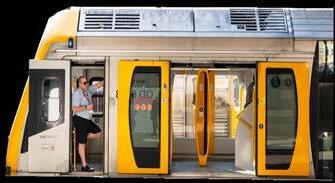
UNSW Sydney Yes Yes
Australian Catholic University No No
Macquarie University Yes No
University of Wollongong No No
University of Technology Yes No
University of Newcastle Yes Yes
Wesrern Sydney University Yes Yes
Charles Sturt University No No
Southern Cross University No No
University of New England No No
In contrast, the University of New South Wales and WeIn contrast, the University of New South Wales and Western Sydney University (WSU) offers better information and instructions. On UNSW’s website, the disability exemption on full-time enrolment is clearly signposted together with an explanatory note directing potentially eligible students to contact UNSW’s Disability Advisor.
In addition to this, UNSW’s design features a frequently asked questions section where a wider range of queries such as cross-institutional study are addressed.
Similarly, WSU presents a comprehensive guide on how to navigate the exemption, with an expressly identified Disability Declaration for Concession Opal Card form available through its Disability Services.
Students express anger at lack of clear information pathways from Disability Services
Frustration is being felt across the university community over USyd’s lack of initiative and clear information pathways to inform students about more nuanced eligibility rules such as the disability exemption.
Gemma Hudson, a fourth-year Bachelor of Arts student who has been studying part-time for a year and currently
DISABLED HONI 2024 14
taking a semester off university due to the impact of arthritis. When she went part-time last year, she did not receive notifications or information related to the possibility of being eligible for transport concession under the disability exemption.
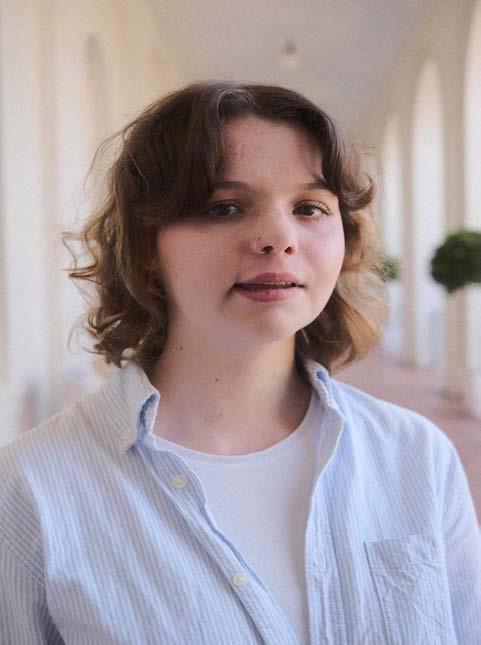
Photo courtesy of Gemma Hudson.
“At the very best, it’s an oversight because clearly there’s so many things that rely on people being fulltime students to have access to them and certain benefits like Centrelink. Being a student, particularly a student with a disability can be challenging,” Hudson told Honi.
“I never learned how to drive because I have joint pain and doing things like pressing pedals was painful for me so I rely on public transport or walking to get to places. So I think it’s illogical to not have that information accessible because it’s clearly important.”
Hudson is also currently registered with USyd’s Inclusion and Disability Services. However, she notes that she has only interacted with IDS at the beginning of her registration and has not had the need for a substantive follow up since.
Hudson is far from alone, with Isabel James, a third-year Bachelor of Communications student from the University of Technology Sydney (UTS) who has changed to part-time enrolment as of this semester. In her first year in 2021, she was struck with COVID-19 and never fully recovered since, being hit with four more COVID infections in “quick succession”. She has also been seeing a neurologist due to daily migraines she has been experiencing and so far, her doctors have said that hers is a “medical mystery”.
James is currently registered with UTS’ Accessibility Service. Despite this, she has not received information from UTS on possible eligibility under Transport NSW’s disability exemption. She laments the dearth of information and the processes involved as universities and governments impose a de facto “disability tax” whereby students have to repeatedly advocate for themselves and navigate byzantine administrative mazes
to access adjustments.
“I’ve had to argue and advocate for myself, and I think that’s something that people with chronic illness have to do. It’s really exhausting and demoralising as well,” said James.
“I think a better solution is, since I’m already registered with Accessibility UTS, for people like me who’ve already done one [registration with UTS Accessibility Service] then that would just make us eligible for the concessions. We shouldn’t have to jump through more hoops.”
Both Hudson and Isabel want their respective universities to do better in providing accessible information, and crucially, instructions on the steps part-time disabled students need to take to access the exemption. This is important because doctors need to know precisely what is being requested by Inclusion & Disability Services and Transport NSW.
“It makes me really tired all the time, having to step through a lot of processes. It’s easier if you know exactly what things are ahead of time. For example, my main treating professional is for arthritis. I only see them every six months. If I want to get a form done, I need to know what information so I can make sure I bring or book that extra appointment. All of these processes require extra planning and when you have to dig through for that information, I think that’s extra frustrating,” Hudson said.

The pair are united in their belief that universities could do far better than under the status quo. Hudson points to enrolment periods as a crucial window when the university could send through communications informing students of alternative arrangements such as Transport NSW’s disability exemption. On a similar vein, James concurs, raising that disabled students already shoulder a substantial administrative burden to adjust to life in environments largely designed for non-disabled people, it would be unjust to add further barriers for students.
“If, for example, I had been informed when I went part-time because I did notify the University on two different channels. If there was information and clear steps available, I think I would be more inclined to seek that out as a solution for myself rather than go down a wild goose chase.”
In response to DisCo’s request for clarifications on the exemptions, USyd’s Inclusion and Disability Services confirms that it “can provide students with disability with access to the Opal travel concession”. The Service says that the exemption is only available for domestic students who are “engaged in part-time study due to the impacts of their disability”, in line with Transport NSW’s guidelines on exemptions for disabled students.
“As part of this process, we ask students to provide documentation from their treating professional to verify that their disability makes it difficult for the student to undertake a full-time load. This is available to students with any disability.”
University promises better information accessibility going forward
The University said that it understands students’ “uncertainty” about their concession status and that support is available and is “committed to ensuring all students have equal access to learning”.
“We agree it would be helpful to improve the information on our website about transport concessions available for domestic students with a disability. We thank Honi for bringing this to our attention and have updated our website accordingly,” a University spokesperson told Disabled Honi
“We tailor our support for students with a disability to the individual, responding to each students’ needs and queries, including questions about transport and concessions, in their registration consultation with Inclusion and Disability Services. We encourage any students who are uncertain about their entitlements to reach out to Inclusion and Disability Services.”
Sydney University also confirmed to Disabled Honi that students’ medical data, including their disability, will not be accessible to Transport NSW.
This follows a petition from the NSW Greens and USyd student organisations that secured more than 20,000 signatures that drew a statement from the NSW Transport Minister Jo Haylen indicating no future policy changes.
A parliamentary debate has been set for Thursday 9 May 2024 at 4:30 PM (AEST). Students who are interested in the proceedings are encouraged to attend virtually via Live Webcasts or in-person together with the USyd SRC and SUPRA.
* denotes changes made to the University of Sydney’s travel concession site in response to Disabled Honi.
15 WEEK 10, SEMESTER 1
Photo courtesy of Isabel James.
VISIBLE
A poem by Jessica Louise Smith
Chair.
Sit.
Adjust. Adjust the other side. No, adjust the other side. Adjust both sides at the same time so they are exactly the same and one side isn’t preferenced over the other Good.
Don’t close your eyes, you must see every second of the video so they’re all treated fairly.
You wouldn’t want one second to think its lesser than the rest of them.
What if it came for you. What is that second was out for blood.
Don’t miss a single second – you never know what could happen.
Scratch. Crack. Cough. Wipe.
Tic.
All eyes on me – eyes down. Eyes uneven – close them. Take 8 breaths before opening them again.
No.
That breath wasn’t full enough. Start again. What number was I up to? Start again.
Finally open eyes – don’t make eye contact.
Listen carefully, type up the notes, no mistakes.
I forgot to capitalise the first letter of the first sentence.
Delete, delete, dele Go again from memory.
WhatifI’mnotrememberingitcorrectly?
Cough.
Don’t write anything, don’t want to risk it. 5 slides behind.
Wipe. Wipe. Wipe.
Tic.
Don’t do that. Don’t think abouTICt. Preventative measures worTICsen it.
Crack.
stopstoPSTOPSTopstopTIC.
Shh.
Are tics rotting my brain?
What if they are?
Stop tics. Now. stopstoPSTOPSTopstopTIC.
Shh.
Scratch.
123456NO123UGH12345678NOTENOUGH12345678ONCEMORE12345678NONEEDANEVENNUMBER12345678.
Hello? Where did you go? Do you care? Can you repeat the last sentence? Scratch.
Tic.
Can’t get it wrong – scratch – bad things happen if wrong. But I don’t know the answer. Cough.
Cough.
WhattodowhatttdowhattodoTIC.
Wipe. Are you mocking me?
I’materriCRACKblepersonI’materCRACKriblepersonI’mateCRACKrribleperson Psychiatric wards near me. This is what I desTICerve. Leave.
Make sure you touch the door handle the right way on the way out, save the human race from ultimate destruction. The responsibility is in your hands.
16 DISABLED HONI 2024

SELF-RELIANCE
A poem by Andy Mann
"When I do not compromise I am selfish and time-hoarding.
When they do not compromise they are ‘reasonable’ and ‘common-sense’.
When I do not compromise I am trapped in a prison of inability.
When they do not compromise it is ‘just a preference’ and ‘for convenience’.
When I do not compromise I am stuck between flight or fight, unable to self-care.
When they do not compromise it is ‘justified’ and ‘self-righteous’.
There is only one universal clock and it does not pause for me.
With no rest, no intermediation, and no consideration is it such a surprise that the hurt is bone-deep?
With no fresh air to breathe, no reprieve, and no pride is it such a surprise that my legacy is a graveyard of unfinished aspirations?
Is it a choice when your options are to leave or to panic?
Is it a choice when your options are either burnout or inertia?
The learning curve is so steep that I train day-in and day-out to climb it But over time, the lactic acid builds up and the ache gets to me.
The holds are slippery. They say I should develop a stronger grip.
What can you do when the provided solutions require preconditions?
Can you afford to take time off to learn to climb?
I slip to stumble, then to free fall. It is a long way down to rock bottom.
To pick yourself back up becomes less of a question of personal resilience and more of a statement about the nets and leverage available to you.
What is your pain tolerance
When it comes to personal failure?
Is it a question of learning or of blunting the afferent impulses?
Is it personal growth to distance yourself from your body?
What is the cost of being self-reliant?
Will you last until retirement?
Are you lucky enough to have a safety net to catch you?"
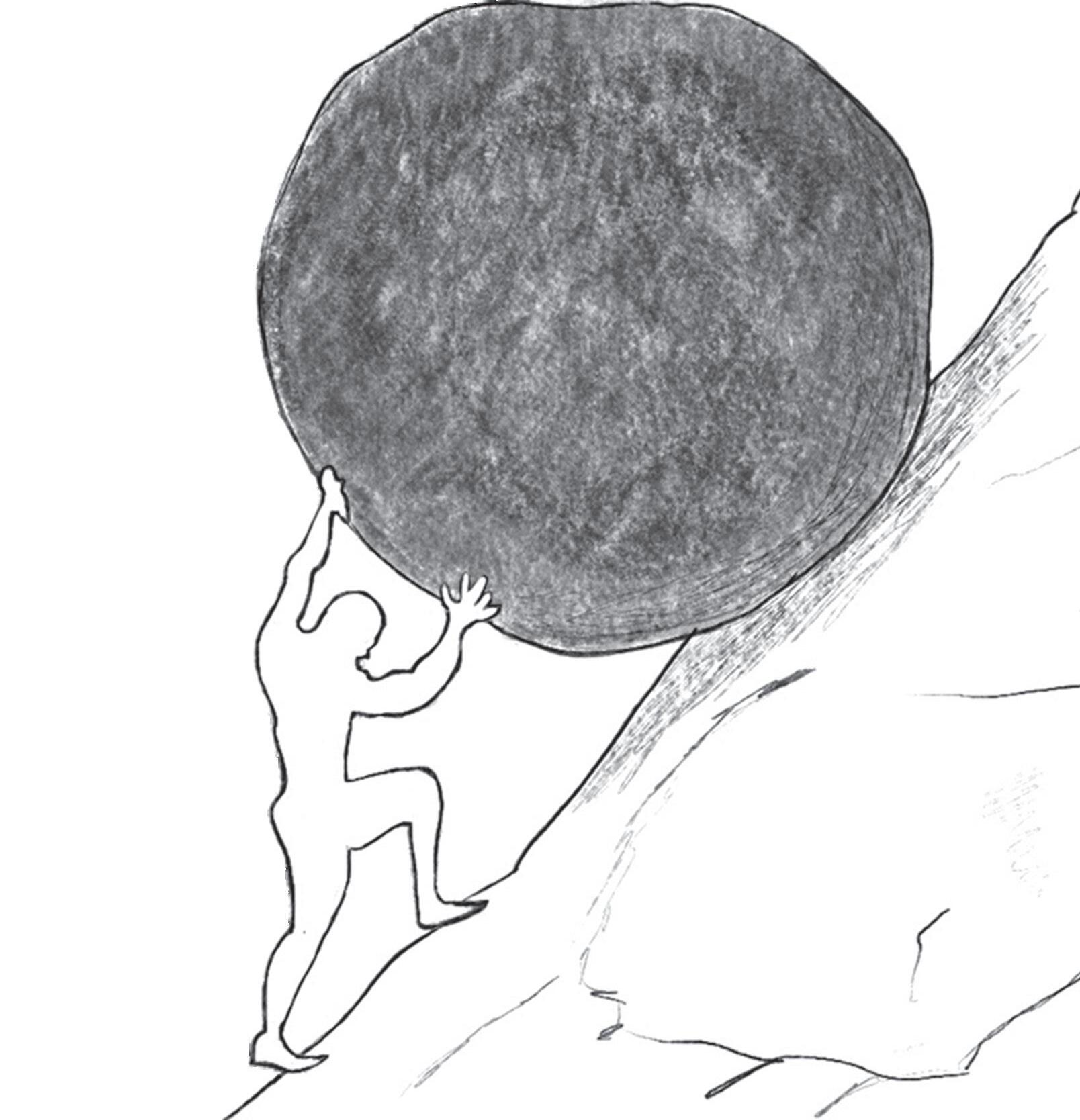
17 WEEK 10 , SEMESTER 1
Art by Grace Street

18 DISABLED HONI 2024


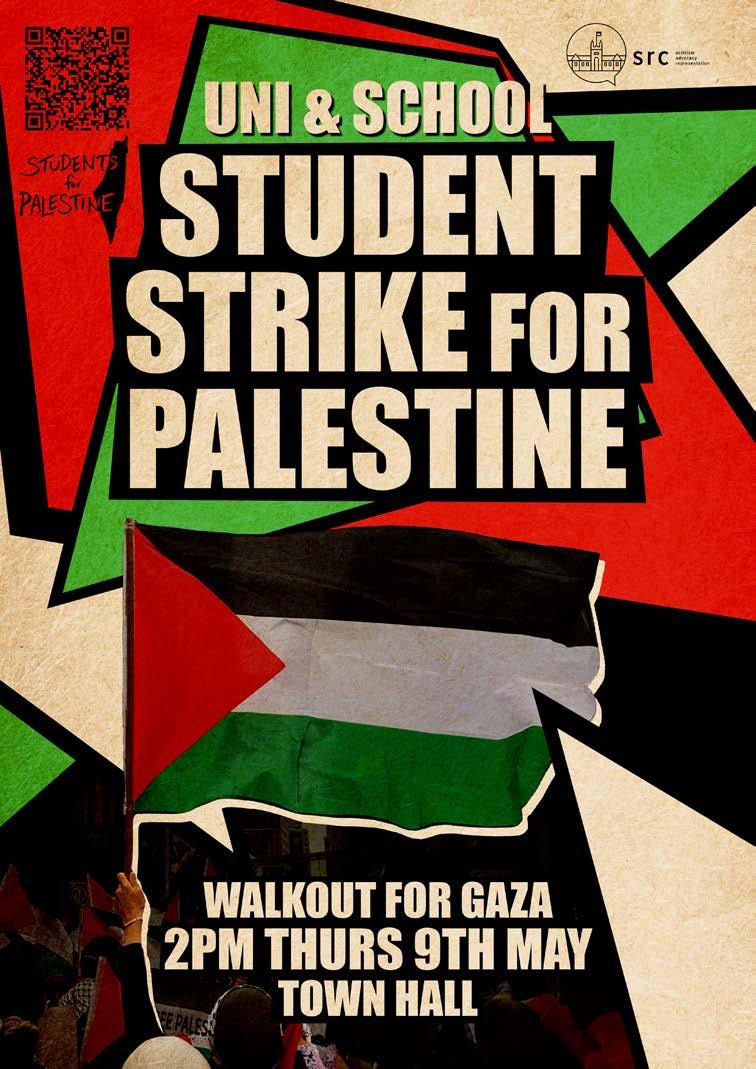
19 WEEK 10, SEMESTER 1
‘From the river to the sea’
by Victor Zhang

President’s Report
Harrison Brennan

SRC Reports
Social Justice Officers’ Report

Last week, the USyd SRC, Students for Palestine and Students Against War set up an encampment on the front lawns of the Quadrangle. This comes after a wave of encampments, starting at Columbia University, spread across the U.S. demanding that universities disclose and divest from all Israeli institutions. The encampments that have sprouted at Columbia, NYU, Harvard, The New School and so many others have been met with brutal repression from university management and the police. We are holding this action to oppose our own universities ties with Israeli institutions and arms manufacturers, which have supported the ongoing genocide of Palestinians in Gaza which has seen over 34,000 people martyred. Our university has intimate ties with Israeli universities, namely Tel Aviv University, Hebrew University of Jerusalem, Technion, and offers OLET2155 Experience Israel. Further, our university has an ongoing partnership (an MoU) with Thales, an arms manufacturing company that has supplied weapons used in the violent dispossession of Indigenous West-Papuans, and used in the slaughter of countless people in the imperialist wars waged against Iraq, Iran and Afghanistan. Students’ demand that our university not support, uphold or normalize our relations with an apartheid state nor allow our intellectual labour to be used for the slaughter of innocents in conflicts abroad. Hence, we demand that the University of Sydney cut ties with all Israeli institutions, and cut ties with any and all weapons manufacturers.
This past week at the encampment we’ve held a series of events for students and community members including organizing meetings, teach-ins, rallies, film screenings and so much more. We at the encampment are blown away by the generosity of the community who have donated food, beverages, blankets and camping gear to support us through these cold nights. We welcome anyone to come and build the encampment, to stay a night during the week, and force university management to cede to our demands.
Message the SRC Instagram or email president@src.usyd.edu.au if you have any questions!
Education Officers’ Report
Shovan Bhattarai & Grace Street
Money for health and education, not for war and devastation!
Books not bombs, Thales off campus. Join our encampment, we’ll see you for our May Day contingent and also our May 9th student strike.
Women Officers’ Report
Eliza & Rand
WoCo has been active at the USYD Gaza solidarity encampment. We demand USYD cut ties with the weapons manufacturers that are aiding the genocide in Palestine. If you want to get involved come down to the quad and join in!
Tahlia Arnold, Lauren Finlayson, Reeyaa Agrawal & Simon Uptis
The Social Justice Officers did not submit a report this week.
Environment Officers’ Report
Madeleine Clark, Thomas Williams & Jordan Anderson
The Enviro Office continues to back Palestinian solidarity. Reflective of this, at the moment, there is an ongoing encampment taking place on the USyd Quad Lawns, inspired by similar actions at universities across the United States and even in Egypt. We encourage everyone to attend this action and demonstrate material solidarity with the people of Gaza.
Intercampus Officers’ Report
Lydia Elias, Alexander Poirer, Zijun Shan & Zifan Xie
The Intercampus Officers did not submit a report this week.

20 DISABLED HONI 2024
The SRC President, Education Officers, Women Officers and Welfare Officer outside the SRC tent at the USyd encampment for Gaza

Late
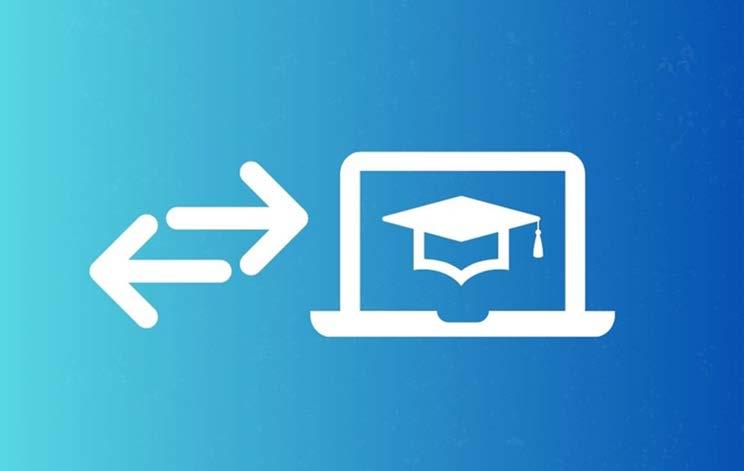
DC applications must have formal, third party supporting documentation from a relevant medical practitioner, counsellor, or similar professional.
Reporting your income to CENTRELINK - Student Survey
We know that Centrelink is challenging, but we want to know what you think about the changed way you report your income.
To have your say, head to: bit.ly/3tu6Kv0
Read the article with links to resources: srcusyd.net.au/ src-help/caseworker-help/academic-issues/discontinue-not-fail/




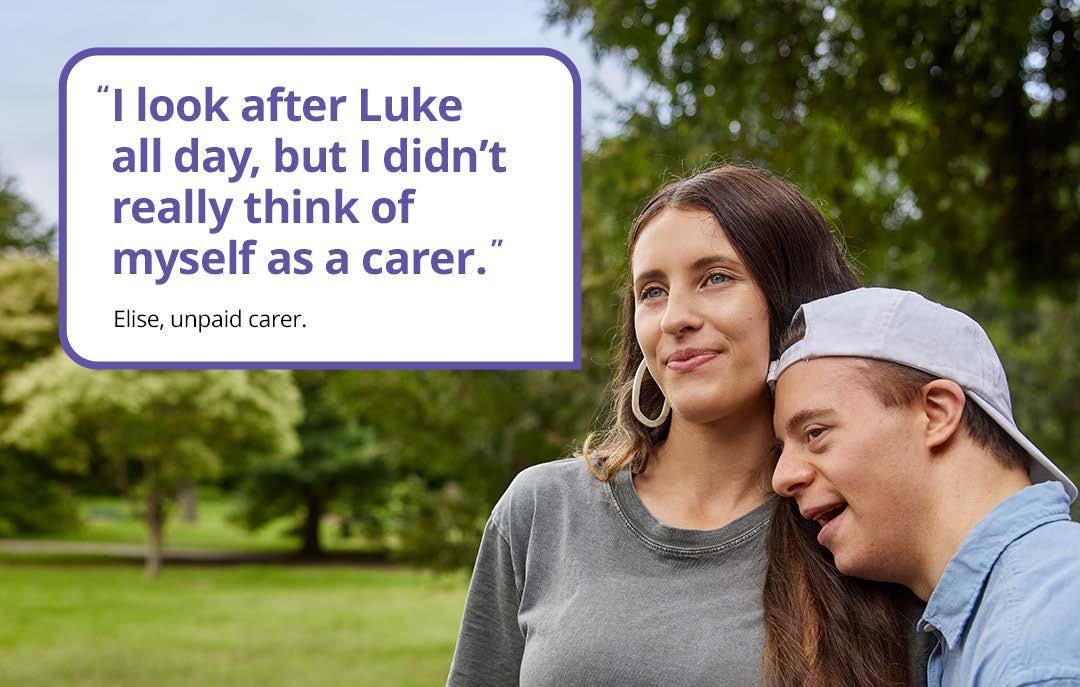
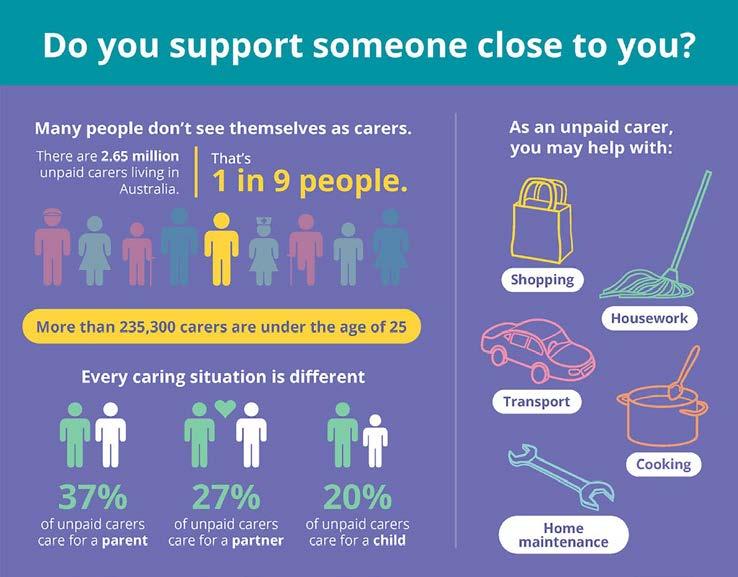
21 WEEK 10, SEMESTER 1
Discontinuation
Spiecial
Ask Abe SRC Caseworker Help Q&A Working Students - Student Income Bank (SIB) If you need help from an SRC Caseworker start an enquiry on our Caseworker Contact Form: bit.ly/3YxvDUf
Under
Circumtances
Find the support you need to care: www.carergateway.gov.au
Sudoku

Crossword




DOWN

ACROSS

4. Font created by Abbie Gonzalez to mitigate some of the reading errors caused by dyslexia
6. Building that houses the Disabilities Space
7. DisCo founded under this SRC President
12. Acronym for the
collective that made this edition
13. The frequency that Disabled Honi is published
14. The current Disabilities Officers
16. Campaign for students to get paid while on placement (abbr.)
17. The number of years

1. Japanese engineer who developed tactile tiles
2. Number of days granted from a simple extension
3. USyd’s famous (and infamously inaccessible) landmark
5. Student union responsible for undergraduates (abbr.)
8. Total number of Disabled Honis published (including this one!)
10. Australian disability rights and advocacy group founded in 1980 (abbr.)
11. Student union responsible for postgraduates (abbr.)
15. Learning disability that affects either reading or writing
since the NDIS became law 19. “Gaza _______
18. Animal often used to assist people
Spelling Bee

You start here (0)
Novice (5)
Okay (11)
Good start (19)
Solid (36)
Nicely done (55)
Tremendous (88)
Astonishing (113)
Wow (156)
Encampment”: taking place at USyd and universities across the world

22 DISABLED HONI 2024
cobwebs
Dusting off the
First edition of Disabled Honi, September 5, 2018.
Crossword: WoCo
Differently Abled Dispatch

LETTERS

Dear Differently Abled Dispatch,
I hope this letter finds you well. I am writing to ask for some advice. My ethnic parents don’t think my disability is real. My mum will not let me get a mental health care plan. She says I just need to work harder.
As such, I have been left with no choice but to secretly take and self-administer my dad’s antidepressants for the past three weeks. Every time he walks into the kitchen and asks if anyone has touched his duloxetine, I hang my head in shame and play with my fidget spinner.
Hear me out. In my defence, I have never felt better. However, my parents have noticed my upbeat mood and improved outlook on life, and are now getting suspicious. What should I do?
Thanks,
Zoe Loft
IN THIS ISSUE...
OPINION: HELP! I’VE RUN OUT OF MY ADHD MEDS AND NOW I
COLOURBLIND DISCO CONVENOR SPENDS TWO YEARS THINKING DISCO LOGO IS PINK (IT’S BLUE!)
I’M GETTING MAJOR WITHDRAWAL SYMPTOMS, GET ME SOME FUCKING BUBBLE WRAP NOW
NSW TO PROPOSE NEW ‘INVISIBLE DISABILITY CONCESSIONS’ FOR PART-TIME DISABLED-STUDENTS: “YOU SEE, THEY’LL CONCEDE THAT THEY’RE DISABLED AND WE’LL CONCEDE THAT THEY DON’T EXIST. IT’S A WIN-WIN FOR EVERYONE!”

BREAKING: Government unveils fasttrack endometriosis initiative: go from appointment to diagnosis in three years or less!

23 WEEK 10, SEMESTER 1
Autism | ADHD | Clinical Depression | Endometriosis | Dyslexia | Imminent Death | Multiple Sclerosis | Cystic Fibrosis | Paraplegia

GENOCIDE
HAVE YOU SEEN THE IN
GAZA?
DO YOU WANT TO KNOW WHAT YOU CAN DO?
CUT TIES!
DIVEST!
SCAN TO SEND AN EMAIL TO THE UNIVERSITY TO DEMAND THEY CUT TIES WITH ISRAEL!
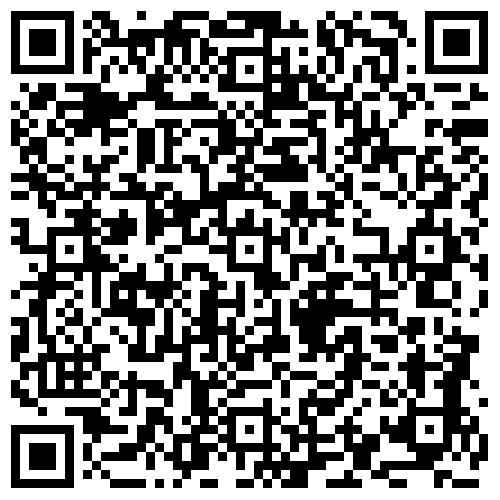
SCAN HERE


